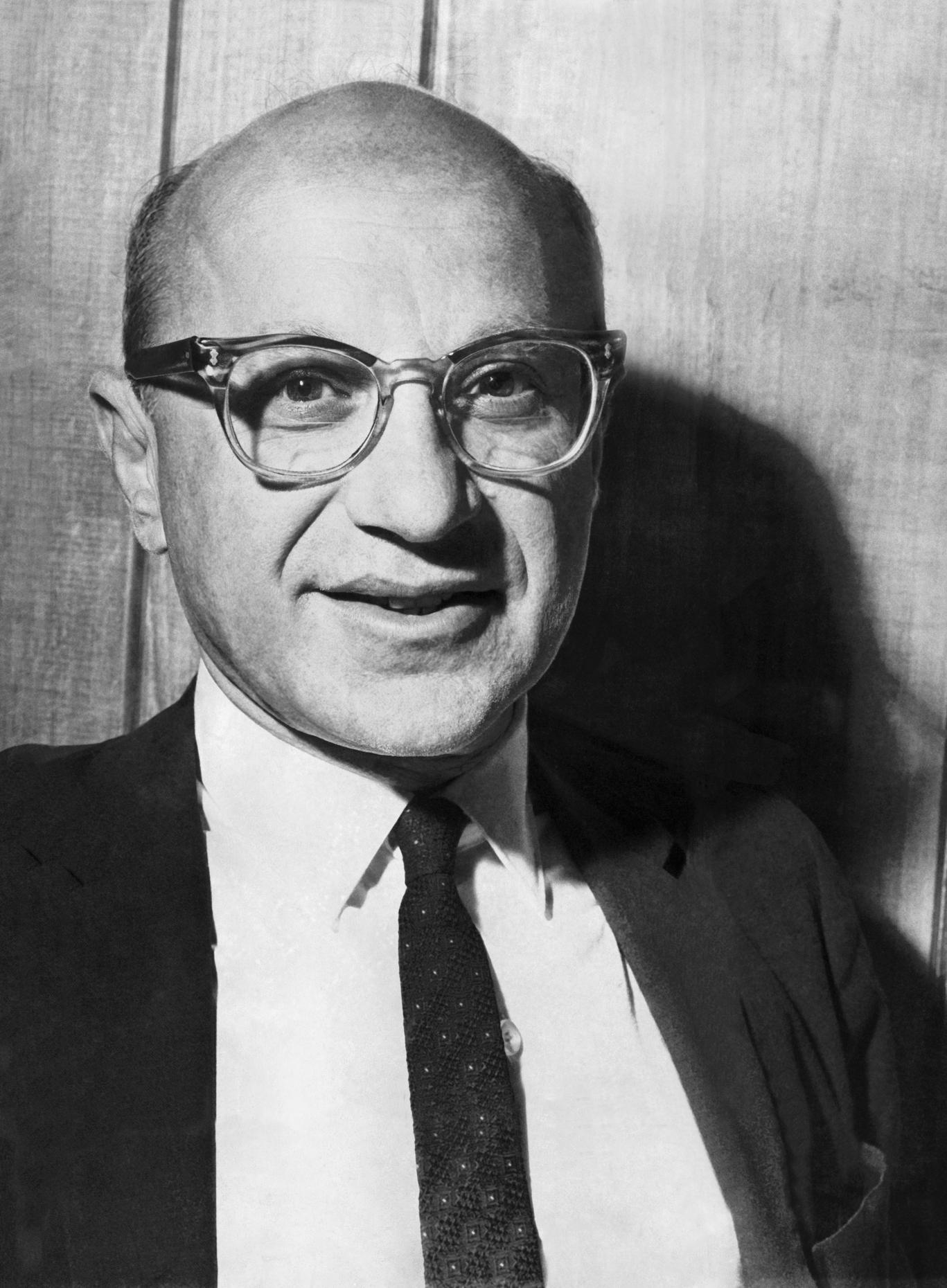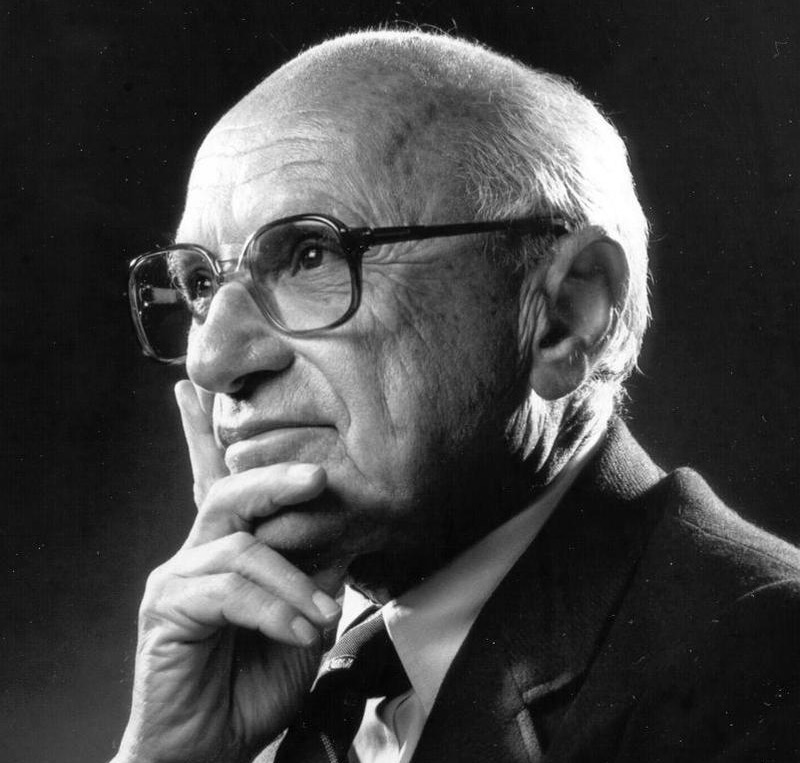Milton Friedman: The Economist Who Shaped Modern Economics
When we talk about economics, one name that always pops up is Milton Friedman. Imagine a guy who not only shaped how we think about money and markets but also influenced policies worldwide. This dude wasn’t just some random professor; he was a game-changer. His ideas were like the Beyoncé of economics—iconic, powerful, and unforgettable. So, if you’re curious about the man behind the theories, buckle up because we’re diving deep into the world of Milton Friedman.
Now, why should you care about this dude? Well, his theories are still relevant today, shaping how governments and central banks make decisions. Whether you’re into finance, politics, or just curious about how the world works, understanding Friedman’s ideas can give you serious insight. Plus, who doesn’t love learning about someone who argued with presidents and won?
In this article, we’ll explore his life, ideas, and how his work continues to impact our lives. Think of it as a crash course in Milton Friedman 101, where we break down complex concepts into bite-sized pieces that even your grandma could understand. Ready? Let’s go.
Read also:Belgium Vs Ukraine A Thrilling Clash On The Global Stage
Biography of Milton Friedman
Early Life and Education
Let’s rewind to the early days of Milton Friedman. Born on July 31, 1912, in Brooklyn, New York, this guy wasn’t born with a silver spoon. His parents were Jewish immigrants from Hungary, and life wasn’t exactly a walk in the park. But hey, when life gives you lemons, you make lemonade, right? Friedman did exactly that, using education as his ticket to success.
He attended Rutgers University, where he initially wanted to be an actuary. But destiny had other plans. While there, he discovered economics and realized it was his true calling. It’s like when you’re scrolling through Netflix and suddenly find the perfect show—it just clicks. Friedman graduated in 1932 with a degree in mathematics and economics, setting the stage for his future endeavors.
Key Achievements and Contributions
Fast forward a bit, and Milton Friedman becomes a powerhouse in the world of economics. In 1976, he won the Nobel Prize in Economic Sciences, cementing his status as a legend. His work on consumption analysis, monetary history, and the complexity of stabilization policy was groundbreaking. It’s like if Einstein met Newton and they had a baby—pure genius.
But that’s not all. Friedman also played a pivotal role in shaping the economic policies of major world leaders, including Ronald Reagan and Margaret Thatcher. He argued for free markets, minimal government intervention, and the importance of monetary stability. His ideas were like a breath of fresh air in a world dominated by Keynesian economics.
Milton Friedman’s Economic Theories
Monetarism: The Cornerstone of Friedman’s Philosophy
Monetarism is like the pièce de résistance of Friedman’s work. It’s all about the role of governments in controlling the amount of money in circulation. Think of it as the economy’s thermostat—too much money, and you get inflation; too little, and you have deflation. Friedman believed that central banks should focus on maintaining a steady growth rate of the money supply, not meddling with fiscal policies.
This theory was a game-changer. Before Friedman, Keynesian economics ruled the roost, emphasizing government spending to stabilize the economy. But Friedman flipped the script, arguing that too much government intervention could do more harm than good. It’s like when your mom keeps telling you to wear a jacket, but you know you’ll be fine without it.
Read also:Portugal Vs Denmark A Clash Of Titans In European Football
The Permanent Income Hypothesis
Another gem from Friedman’s toolbox is the Permanent Income Hypothesis. This theory suggests that people’s consumption patterns are based on their long-term income expectations, not their current income. It’s like planning your grocery shopping based on your annual salary, not just your weekly paycheck. This concept challenged traditional views on consumer behavior and had significant implications for economic policy.
Friedman’s insights here helped policymakers understand how people make financial decisions and how those decisions impact the broader economy. It’s like giving economists a cheat code to predict consumer behavior.
Impact on Modern Economics
Global Influence
Milton Friedman’s influence isn’t limited to textbooks; it’s everywhere. Countries around the world have adopted his principles to shape their economic policies. For instance, Chile’s economic reforms in the 1970s were heavily influenced by Friedman’s ideas. It’s like when you discover a great recipe and suddenly everyone’s making it.
Even today, central banks and governments use Friedman’s theories to guide their decision-making processes. His emphasis on monetary stability and free markets has become a cornerstone of modern economic thought. It’s like having a trusted advisor who always gives you the best advice.
Challenges and Criticisms
Of course, no great thinker is without critics. Some argue that Friedman’s emphasis on free markets ignores the realities of inequality and social justice. They believe that too much focus on monetary policy can lead to neglecting important social issues. It’s like saying, “Sure, the car runs great, but what about the potholes on the road?”
Others point out that Friedman’s theories don’t always account for external factors like globalization or technological advancements. While his ideas were revolutionary in their time, the world has changed, and some adjustments might be necessary. It’s like updating an old app to work with the latest software.
Friedman’s Role in Policy Making
Advising World Leaders
Imagine sitting down with a world leader and telling them how to run their economy. That’s exactly what Milton Friedman did. He advised presidents, prime ministers, and other bigwigs on how to implement free-market policies. It’s like being the coach of a championship-winning team—everyone wants your advice.
His influence was felt in countries like the United States, the United Kingdom, and Chile. Leaders like Ronald Reagan and Margaret Thatcher embraced his ideas, leading to significant economic reforms. It’s like when a band adopts a new sound and suddenly becomes a global sensation.
Legacy in Economic Policy
Friedman’s legacy in economic policy is undeniable. His ideas have shaped how governments approach monetary and fiscal policies. Even today, debates about the role of government in the economy often reference his work. It’s like a classic movie that keeps getting remade because it’s just that good.
His emphasis on individual freedom and limited government intervention continues to inspire policymakers around the world. It’s like a guiding light that helps navigate the often turbulent waters of economic policy.
Personal Life and Insights
| Full Name | Milton Friedman |
|---|---|
| Date of Birth | July 31, 1912 |
| Place of Birth | Brooklyn, New York, USA |
| Spouse | Rose Director Friedman |
| Fields of Study | Economics, Statistics, Mathematics |
Beyond his professional achievements, Milton Friedman was a family man. He married Rose Director in 1938, and the couple had two children. His personal life was marked by a strong sense of family and community, values that influenced his work. It’s like having a solid foundation that supports everything you do.
Friedman was also known for his wit and charisma. He had a way of explaining complex ideas in a way that everyone could understand. It’s like being the life of the party, but instead of jokes, you’re talking about economics. His ability to connect with people made him a beloved figure in the academic community.
Challenges in Implementing Friedman’s Ideas
Real-World Application
While Friedman’s ideas are great in theory, implementing them in the real world can be tricky. Factors like political resistance, social inequality, and global economic conditions can complicate things. It’s like trying to bake a cake but realizing you’re missing a key ingredient.
For instance, promoting free markets in countries with high levels of inequality can exacerbate existing issues. Policymakers must balance Friedman’s principles with the need to address social concerns. It’s like walking a tightrope—too far one way, and you fall off.
Adapting to Modern Times
As the world evolves, so must Friedman’s ideas. The rise of digital currencies, automation, and globalization presents new challenges that weren’t around during his time. It’s like upgrading your phone but realizing the apps need updates too.
Economists today are tasked with adapting Friedman’s theories to fit the modern landscape. This involves rethinking traditional approaches and incorporating new data and technologies. It’s like renovating a house while keeping its original charm intact.
Conclusion
Milton Friedman was more than just an economist; he was a visionary who changed the way we think about money and markets. His ideas have stood the test of time, influencing policies and shaping economies worldwide. Whether you agree with his theories or not, there’s no denying his impact on modern economics.
So, what’s next? If you’ve enjoyed this deep dive into Milton Friedman’s world, why not share it with your friends? Or maybe leave a comment with your thoughts. And hey, while you’re at it, check out some of our other articles on economics and finance. After all, knowledge is power, and who doesn’t want a little more of that?
Table of Contents
Article Recommendations


